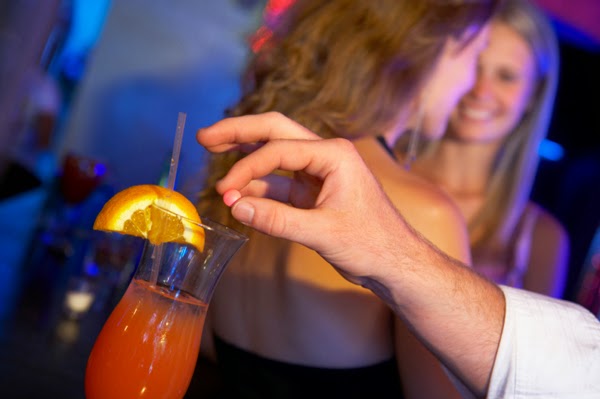Involuntary Intoxication Reality:
“I no longer knew what was real and what wasn’t. The lines between reality and delusion had become so blurred.” ― A.B. Shepherd, The Beacon
This is what has happened to judges in courts across Texas when it comes to DWI charges. The purpose of the penal code is to punish crime and thereby deter others from committing the same crime. Most crimes involve people making bad moral choices, choices that hurt others. Most crimes involve intent to commit the crime. The law recognizes we cannot punish people for actions they did not or could not have intended. That is why we have defenses that include mistake of fact, mistake of law, duress, entrapment, self defense, and necessity to name a few. Yet the defenses for intoxication as a victim, either because of accident or drugging, have been rejected by Texas courts.
How Texas treats involuntary intoxication

Texas addresses intoxication, the culpability state, in penal code §8.04 (a) Voluntary intoxication does not constitute a defense to the commission of crime. From, this Texas courts have determined that DWI requires no intent to commit the crime, but they have expounded on this principal to the non-logical extreme to prevent any defense to DWI. This is wrong. It ignores principals of actus reus and automatism. Getting “voluntarily intoxicated” can’t be a defense to DWI. The act of driving while intoxicated assumes intoxication. But what if your intoxication was NOT voluntary, what then? This is where the judicial delusions begin. In Brown v. State, 2009 WL 3853859 (Tex. App.- Fort Worth, 2009, reh. Denied), the Court said an involuntary intoxication defense would NEVER be available in a DWI case as there is no intent to commit a DWI requisite to a conviction. Thus, since there is no mental state rule, all DWI scenarios are fair game for conviction. In Brown, the defendant had two drinks before bed, woke up and took Ambien instead of his blood pressure pills. The court denied the jury question determining the issue of “involuntary intoxication.” The highest appellate criminal court in Texas recently agreed with the Brown court outcome on similar facts in Farmer v. State, 411 S.W.3d 901 (Tex. Crim. App. 2013) where Farmer ingested an Ambien his wife set out in place of his normal pills. Here, the Court states that the argument of ‘voluntary act’ (lack of actus reus) was improper and that it should have been a defense of “involuntary intoxication” argued (which the Texas courts in countless decisions has stated does not exist) and gave no grounds of relief. Yes, legal running in circles to get the end result: a DWI conviction.
“Slipped a mickie” cases

Just as troubling are the “slipped a mickie” in the drink cases. In Bearden v. State, 2000 WL 19638 (Tex. App. –Houston [1st Dist.] 2000), despite defendant’s testimony that someone had to have slipped something in his drink, the jury was not allowed to judge the credibility of the defense and its merits because the Court reasoned the legislature had not included a culpable mental state in the definition of DWI. In McKinnon v. State, 709 S.W.2d 805 (Tex. App.-Fort Worth, 1986) with similar facts, the Court blamed the defendant on not being able to get the defense because she did not prove the who, what, and how of having her drink drugged. This begs the dangerous reality that when people do have their drinks drugged, which is an unfortunate situation not all too uncommon, the perpetrators do not generally make neon light confessions to the act before, while or after they do it. What is even more troubling is that GHB leaves the body in less than 12 hours making it near impossible to prove drugging by the time the defendant makes bond. Texas courts have also attempted to rule out the “automatism” defense using the same flawed logic. In Nelson v. State, 149 S.W.3d 206 (Tex. App.-Fort Worth 2004), the court ruled that automatism, “engaging in what would otherwise be criminal conduct if done in a state of unconsciousness or semi-consciousness” falls within the insanity defense where it does not apply to DWI due to no mental state or intent being a part of the proscribed conduct. Thus, in one fell swoop, the court rejects automatism without ever addressing its merits which has nothing to do with the insanity defense.
Good examples of considering involuntary intoxication
 Although the insanity of MADD pressure on elected politicians has contributed to this type of agenda based decision making, other states have set great examples in the area of “involuntary intoxication.” California in People v. Holloway, 164 Cal. App. 4th (2008), declared that they could give no reason “for punishing those who have become drunk through unavoidable accident, or through an honest mistake.” In this case the defendant was “sleep driving” due to a medication he took while unconscious. The Georgia Court of Appeals held in Colon v. State, 256 Ga. App. 505 (2002), a GHB poisoning case, the ultimate merit of an involuntary intoxication defense goes to the jury once the defendant has proven by a preponderance of the evidence the “involuntary intoxication must render the person incapable of distinguishing from right or wrong and must be attributable to consumption of a substance through excusable ignorance or the coercion , fraud, artifice, or contrivance of another.”
Although the insanity of MADD pressure on elected politicians has contributed to this type of agenda based decision making, other states have set great examples in the area of “involuntary intoxication.” California in People v. Holloway, 164 Cal. App. 4th (2008), declared that they could give no reason “for punishing those who have become drunk through unavoidable accident, or through an honest mistake.” In this case the defendant was “sleep driving” due to a medication he took while unconscious. The Georgia Court of Appeals held in Colon v. State, 256 Ga. App. 505 (2002), a GHB poisoning case, the ultimate merit of an involuntary intoxication defense goes to the jury once the defendant has proven by a preponderance of the evidence the “involuntary intoxication must render the person incapable of distinguishing from right or wrong and must be attributable to consumption of a substance through excusable ignorance or the coercion , fraud, artifice, or contrivance of another.”Conclusion
Thomas Jefferson said, “Experience hath shewn, that even under the best forms of government those entrusted with power have, in time, and by slow operations, perverted it into tyranny.” It does not take a law degree to know that prosecuting, much less convicting, someone of DWI who is a drugging victim or for taking the wrong medication violates all moral boundaries. Sure, the question of whether the involuntary intoxication defense is legitimate is a question to decide on a case by case basis that we should leave to the jury or trial judge for its merits. For appellate courts to twist logic and legal semantics to prevent such defenses from its citizenry is wrong. DWI enforcement all the way up to the highest court in Texas has turned into a witch hunt when victims under the scenarios discussed here have no redress. It is time we get back to basic justice in the world of DWI. Mark Twain said, “Always do what is right. It will gratify half of mankind and astound the other.” Texas judges, bring back the involuntary intoxication defense. To do otherwise is no different than supporting corruption. DWI has always been framed around preventing victims. Yet, when those victims have become intoxicated through no reasonable fault of their own, Texas courts have turned their back. This is hypocrisy in the name of blind allegiance to zero tolerance not justice.
“Always do what is right. It will gratify half of mankind and astound the other.”
Mimi Coffey – DWI Defense Lawyer in Dallas County, DWI Lawyer in Tarrant County, DWI Lawyer in Wise County, DWI Lawyer in Johnson County, DWI Lawyer in Parker County, DWI Lawyer in Collin County, DWI Lawyer in Denton County

